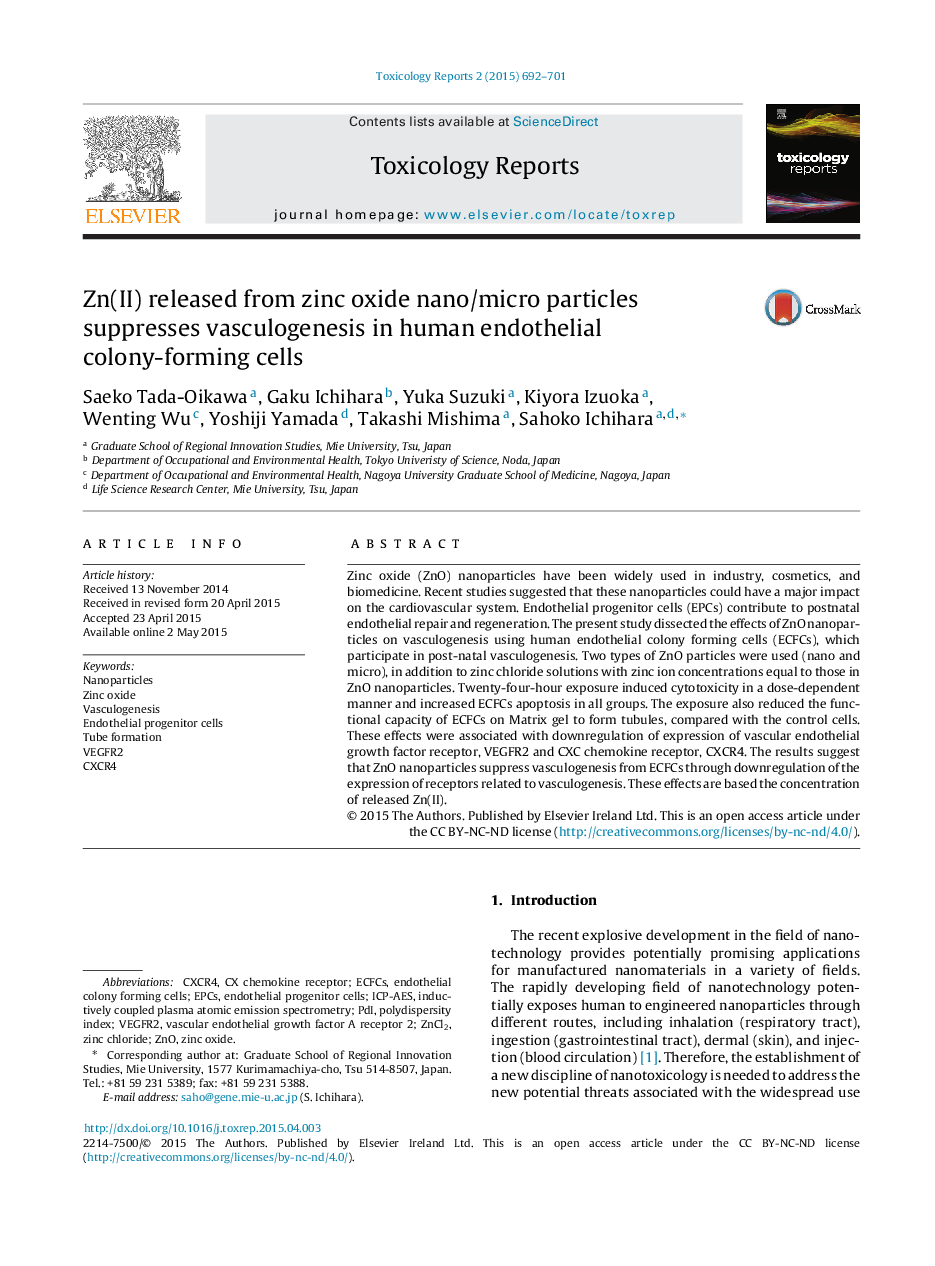| Article ID | Journal | Published Year | Pages | File Type |
|---|---|---|---|---|
| 2572263 | Toxicology Reports | 2015 | 10 Pages |
Zinc oxide (ZnO) nanoparticles have been widely used in industry, cosmetics, and biomedicine. Recent studies suggested that these nanoparticles could have a major impact on the cardiovascular system. Endothelial progenitor cells (EPCs) contribute to postnatal endothelial repair and regeneration. The present study dissected the effects of ZnO nanoparticles on vasculogenesis using human endothelial colony forming cells (ECFCs), which participate in post-natal vasculogenesis. Two types of ZnO particles were used (nano and micro), in addition to zinc chloride solutions with zinc ion concentrations equal to those in ZnO nanoparticles. Twenty-four-hour exposure induced cytotoxicity in a dose-dependent manner and increased ECFCs apoptosis in all groups. The exposure also reduced the functional capacity of ECFCs on Matrix gel to form tubules, compared with the control cells. These effects were associated with downregulation of expression of vascular endothelial growth factor receptor, VEGFR2 and CXC chemokine receptor, CXCR4. The results suggest that ZnO nanoparticles suppress vasculogenesis from ECFCs through downregulation of the expression of receptors related to vasculogenesis. These effects are based the concentration of released Zn(II).
